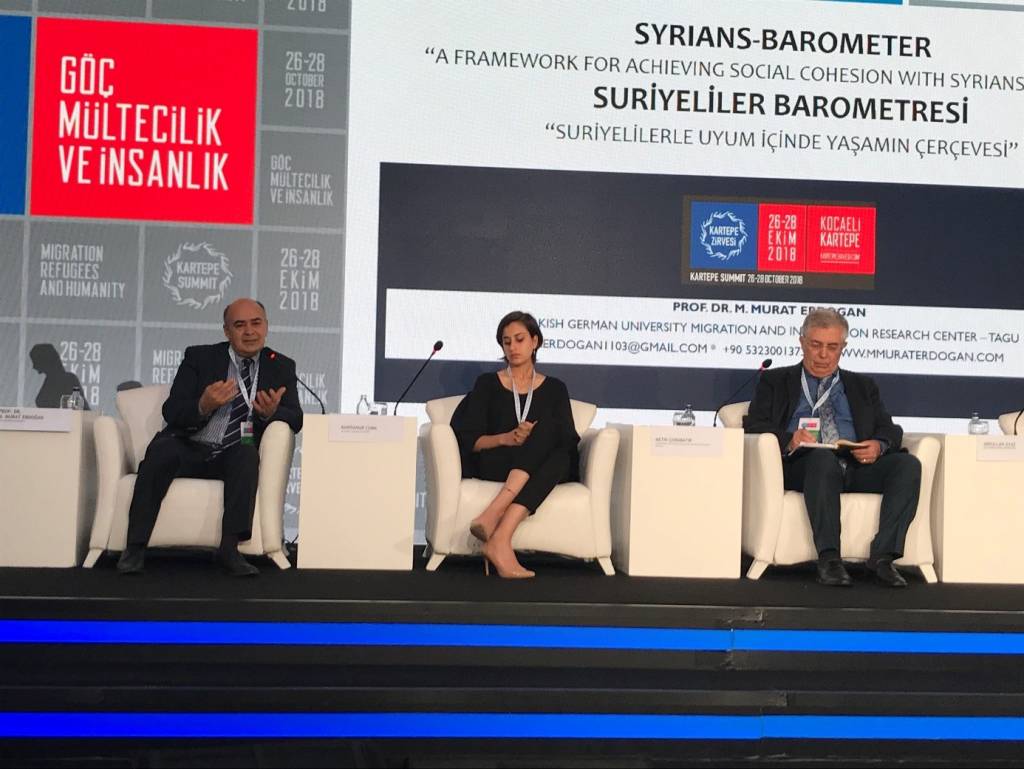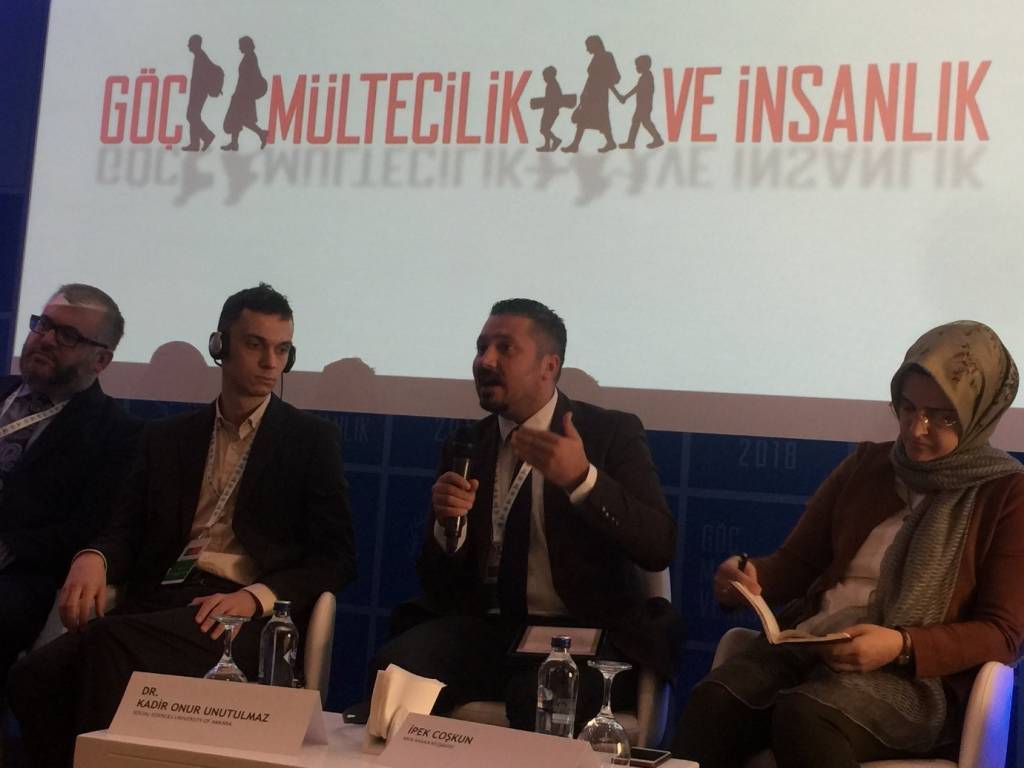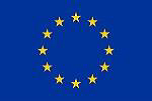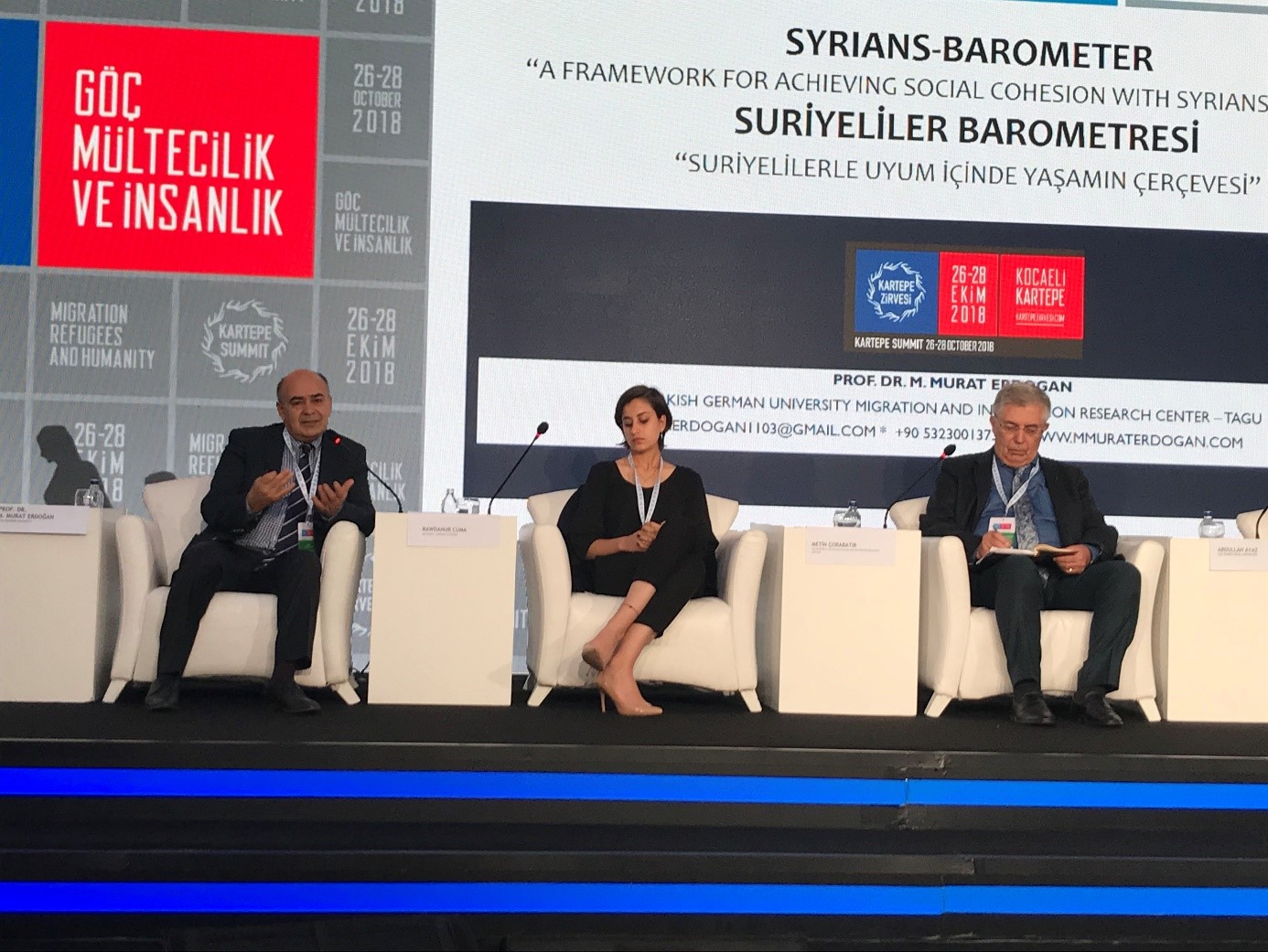Text by Onur Unutulmaz
The Kartepe Summit is an annual meeting in Turkey where representatives of academia, civil society, and political institutions from across the country and abroad meet to discuss an important social and political issue. In October 26-29, 2018, in view of Turkey’s recently held status of the country hosting the largest number of refugees in the world, the theme for the summit was “Migration, Refugees and Humanity” (see https://www.kartepezirvesi.com/program). With over 4 million refugees, of whom some 3.6 million Syrians[1], the issues surrounding future prospects of refugees in the country, and their social integration in particular, are of great political concern. Moreover, the future Turkey’s Syrians is of great concern for the international community as well, specifically including the Europeans. That is why there was a top level of participation from the Turkish as well as European and international organisations. These include the opening speeches by the Turkish Minister of Interior and the Minister of Foreign Affairs, as well as the Head of EU Delegation to Turkey, Greek Minister of Migration Politics, UN Resident Coordinator in Turkey and a former Greek Prime Minister.
During the three days of the Summit, there were dozens of parallel thematic sessions where academics, INGO and NGO representatives, politicians, bureaucrats and representatives of refugee communities made presentations. Prof. Murat Erdoğan (Turkish German University-TGU), who was one of the keynote speakers of the Summit, took part in several panels and a workshop on the present and future of Syrians in Turkey.

Prof. Erdoğan argued, based on findings from several research projects including EduMAP, that the Turkish society is only beginning to consider a shared life with Syrian refuges, whose presence was previously considered to be temporary. In this context, social integration policies are a must for Turkey. He further argued that, considering the demographics of the Syrian refugee population in Turkey, adult education (AE) programmes and initiatives are an indispensable instrument for ensuring long term social integration of Syrians. This is because, of the 3.6 million registered Syrian[1] refugees, more than half are of 18 years old or older. Moreover, due to the ongoing civil war in Syria, a remarkable number of Syrians have had to drop out from their schools and abruptly quitted their education. The situation is further accentuated by the fact that the geographical regions from where the vast majority of Syrians in Turkey originate, the Northern countryside of the country and Aleppo region, are usually characterised by a lower level of educational attainment to begin with, in a country where secondary education is not obligatory. Given all this, Prof. Erdoğan claimed that the Turkish state needs to go further than full integration of school-aged Syrians, which is certainly required, and formulate effective AE policies. Using EduMAP research findings, Prof. Erdoğan demonstrated the importance of local level actors, specifically including the local and national NGOs and their community centres, for the implementation of AE policies. He emphasised, however, the need for a dual approach that needs to work simultaneously: accordingly, while a long-term stable national vision and strategy is essential; the role of local actors in ensuring implementation of this overall strategy is of immense importance. The situation of Syrians in the southeast Turkey neighbouring Syria, such as Gaziantep or Urfa, is very different than the context in large metropolitan cities in the west part of country, such as Istanbul or Izmir.
Dr. Onur Unutulmaz (Social Sciences University of Ankara-ASBU) spoke at a panel entitled “Migrant Integration and Education” where he provided a historical background of Turkey’s approach to Syrians’ education before talking about the current situation.

Dr. Unutulmaz described Turkey’s macro-level approach to the education of Syrians in three major stages. Accordingly, in the first stage, Turkey’s policy, or rather the lack thereof, was determined by the dominant expectation that the presence of Syrians in Turkey will not be a long-term phenomenon. Therefore, the Turkish state didn’t adopt any long-term strategy and rather left the education of Syrian children to the ad hoc Syrian local NGOs themselves. These rather small communities established their own temporary schools, recruited their own teacher, and whatever material they could salvage from Syria. In the second stage, in turn, the Turkish state recognized the fact that Syrians’ presence will not be as short-lived as expected and started establishing the so-called Temporary Education Centers (TECs), where the teachers were brought under the control of the National Ministry of Education as well as the curriculum and material they used in the classrooms. As the perception of the permanence of a large part of Syrians in the country started to settle in, the Turkish state felt the need for the third stage which involved the complete integration of all Syrian school-aged children in formal Turkish schools. In this current final stage, a gradual elimination of TECs is accompanied by incorporation of Syrian children into Turkish formal schools. Dr. Unutulmaz, finally, argued that while this policy change is a welcome development, provided the demographic structure of Syrians around the country, it is incomplete without the adoption of corresponding AE policies.
[1] Technically, Syrians who entered Turkey through mass migration escaping the civil war in Syria since 2011 are not refugees. Due to Turkey’s now famous ‘geographical limitation’ on the Geneva Convention and its Additional Protocol, Turkey doesn’t grant official refugee status to anyone whose country of origin isn’t in Europe. The Syrians in Turkey are officially recognised as “People Under Temporary Protection”, while for all practical purposes they are refugees.



Comments